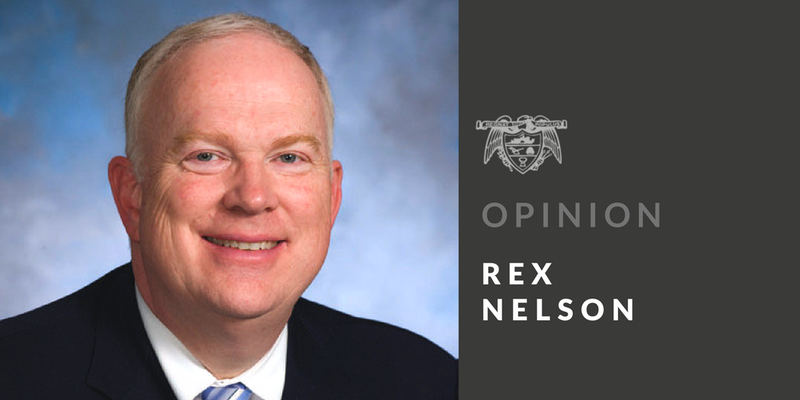One of the things that intrigued me about Hot Springs when I was growing up was its combination of highbrow and lowbrow attractions. You could walk into the ornate lobby of the Arlington Hotel and see what my uncle referred to as "those rich retirees from Chicago." As a newspaper aficionado, I especially appreciated the fact that I could purchase a copy of that day's Chicago Tribune at the Arlington. Farther down Central Avenue, there were souvenir shops and tacky tourist attractions. Highbrow and lowbrow shared space on the same street, and somehow it worked.
I considered IQ Zoo, which had opened in 1955 on Whittington Avenue, to be a lowbrow attraction, focused on prying money from the pockets of those visitors from Chicago and elsewhere.
"It featured wild and domestic animals doing complex tricks," Elson Bihm and Arthur Gillaspy Jr. write for the Central Arkansas Library System's Encyclopedia of Arkansas. "For example, chickens walked a tightrope, danced to music and played baseball. Rabbits kissed their 'girlfriends,' rode firetrucks and spun fortune wheels. Ducks played drums and pianos. Raccoons played basketball. And reindeer operated a printing press. Later, Bird Brain, the tic-tac-toe-playing chicken, was a feature of the IQ Zoo."
It wasn't until years later that I understood the role IQ Zoo and its founders played in researching and showcasing the psychological concept known as operant conditioning. Companies ranging from Disney to General Mills took notice. IQ Zoo is on my mind because I received a copy of the small book Jim Clowers and His Magic Animal Friends at the IQ Zoo. Clowers wrote the manuscript more than a decade ago. His son, Jim Clowers Jr., found it and decided to get it into print.
The elder Clowers was an animal trainer who began working in 1967 for Animal Behavior Enterprises, which trained animals for the federal government and others. He later went to work for the sister company, IQ Zoo. Clowers Sr., two sons and a grandson ran Clowers' Zoo with IQ from 1997 until 2003. With the recent renaissance of downtown Hot Springs, the family is considering the development of a new animal-based attraction.
IQ Zoo founders Keller and Marian Breland met while working under psychologist B.F. Skinner in the 1940s. During World War II, one of their projects trained pigeons to guide missiles. The Brelands moved to Hot Springs in 1950 to build a training center for their new company, Animal Behavior Enterprises.
"My parents, Donovan and Mary Clowers, built a home on Ridgeway Boulevard in Hot Springs in 1945," Clowers Sr. writes. "This was just down the road from Animal Behavior Enterprises' future site. Back then, Ridgeway was a dusty dirt road. ... When a rare car would go by, it would throw dust up like you wouldn't believe. This caused us to run to see who it could possibly be. In the 1950s, my brother Richard and I played on Ridgeway. We often saw a man in a long, black car. It turns out that man was Keller Breland. He always had a smile and waved to us. Little did I know then that the smiling man in the long, black car would play a huge role in who I turned out to be."
Clowers' mother talked him into applying for a job with the Brelands in 1967. He showed up for an interview and was told to report to work at 5 a.m. the next day.
Keller Breland was a Mississippi native who earned a degree in psychology from Millsaps College in Jackson, Miss., in 1937. He obtained a master's degree from Louisiana State University two years later and met Marian while studying for his doctorate at the University of Minnesota. Marian was a Minneapolis native.
"Their first meeting involved animals, specifically a rat," Gillaspy and Bihm write. "The story is that Marian was running down a hallway after being bitten by a laboratory rat and literally ran into Keller. They were married on Aug. 1, 1941, and had three children."
The couple decided they could make a living using operant psychology to train animals. Skinner advised against it, but they left the university prior to completing their studies and started their company on a small farm in Mound, Minn. As a Mississippi native, Keller hated the cold weather in Minnesota. He began looking for a farm in Arkansas and found land for sale near Hot Springs.
The opening of IQ Zoo provided additional income. The History Channel later would rate it among the most popular roadside tourist attractions in the country during the 20th century. There were stories in magazines ranging from Life and Time to Reader's Digest and Popular Mechanics.
"The popularity of the IQ Zoo brought Keller and Arkansas to the attention of the commercial animal-training industry," Gillaspy and Bihm write. "In the 1950s, he and Marian developed the first operant-based marine mammal and bird shows for Marineland of the Pacific, Marine Studios and Parrot Jungle. Keller and his animals also appeared on numerous television programs ... . Animal trainers from across the country came to Hot Springs to learn the Brelands' techniques. Today, the animal-training programs at most major theme parks and oceanariums such as Sea World and Busch Gardens can be tracked back to Keller and Marian Breland."
Keller died of a heart attack in 1965. Marian finally completed her psychology doctorate at the University of Arkansas in 1978. She taught at what's now National Park College in Hot Springs and then moved to Henderson State University at Arkadelphia in 1981. She retired at age 78 as a full professor and died in 2001.
------------v------------
Senior Editor Rex Nelson's column appears regularly in the Arkansas Democrat-Gazette. He's also the author of the Southern Fried blog at rexnelsonsouthernfried.com.
Editorial on 01/22/2020
